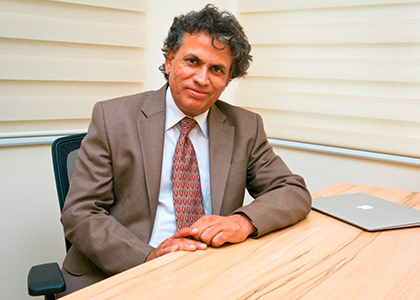Overview
Rehabilitation centers specializing in Alzheimer's care create a nurturing environment where individuals can concentrate on preserving and augmenting their functional capacities and overall quality of life. These centers play a pivotal role, particularly for patients confronting more pronounced symptoms that warrant an elevated level of care. Considering rehabilitation for Alzheimer's becomes imperative when an individual grapples with challenges in social connections, struggles to complete routine tasks, experiences difficulty in mobilizing, or exhibits signs of emotional distress. The comprehensive services provided by rehab centers encompass round-the-clock crisis care, comprising support groups, individual therapy sessions, administration of psychiatric medications, skilled nursing care, and family therapy. This holistic approach ensures not only the safety but also the overall well-being of the individual, addressing the multifaceted aspects of Alzheimer's care.
Why does one need a rehab center for Alzheimer's?
While a definitive cure for Alzheimer's remains elusive, individuals grappling with the advanced stages of the disease often find solace in more intensive care and support. Specialized Alzheimer’s care facilities create a structured environment specifically designed to aid those experiencing severe symptoms. Within these facilities, round-the-clock care is administered by a team of seasoned experts in Alzheimer’s care, including psychiatrists, therapists, and specialized nurses proficient in addressing the intricacies of the condition. Furthermore, rehabilitation centers may introduce a spectrum of evidence-based therapies customized to cater to the cognitive and emotional requirements associated with the disease. These may encompass cognitive rehabilitation, reminiscence therapy, and supplementary interventions like music therapy and sensory stimulation. By adopting a comprehensive approach to treatment, Alzheimer's rehabilitation centers strive to optimize the potential for improvement in an individual’s overall well-being. This holistic treatment strategy goes beyond mere medical interventions, incorporating therapeutic measures that aim to enhance cognitive functions and bolster emotional resilience.
When should you ask for help?
It is crucial to reach out for assistance when faced with Alzheimer's disease symptoms that impact your daily life and overall well-being. Indicators that may signal the necessity for professional help include persistent memory loss, confusion regarding time and place, challenges in performing familiar tasks, difficulties in problem-solving, and noticeable shifts in mood or personality. If these symptoms persist and disrupt your ability to independently manage everyday activities, seeking help becomes imperative. Timely diagnosis and intervention play a pivotal role in handling the progression of Alzheimer's disease and elevating the quality of life for both individuals and their caregivers. Engaging with healthcare
professionals, such as neurologists or geriatric specialists, facilitates comprehensive assessments and provides guidance on treatment options, support services, and strategies to enhance daily functioning and cognitive abilities. Seeking assistance at an early stage contributes to a more effective approach in managing Alzheimer's disease.
What type of doctors or specialists can help with Alzheimer's treatment?
Alzheimer's treatment involves a diverse group of healthcare professionals, each addressing cognitive, behavioral, and overall well-being aspects. The key specialists encompass:
Neurologists: These experts, specializing in nervous system disorders, play a crucial role in diagnosing and managing Alzheimer's disease. They assess symptoms, conduct tests, and offer guidance on treatment.
Geriatrician: Geriatric specialists, specializing in the well-being of elderly individuals, enhance comprehensive Alzheimer's care by addressing not only cognitive aspects but also general health concerns linked to the aging process.
Psychiatrist: Psychiatrists, who specialize in mental health, help manage the behavioral and psychological symptoms linked to Alzheimer's. They may prescribe medications and offer therapeutic support.
Neuropsychologist: Neuropsychologists evaluate cognitive function, aiding in the diagnosis and monitoring of Alzheimer's disease. They provide insights into how cognitive changes affect daily life and can customize interventions accordingly.
Primary Care Physician (PCP): Primary care doctors are often the first professionals individuals approach with Alzheimer's symptoms. They can assess the situation, make referrals to specialists, and offer ongoing support and monitoring.
Care Team: A well-rounded Alzheimer's care team may consist of nurses, nurse practitioners, social workers, and other healthcare professionals. Together, they collaborate to offer comprehensive care, support, and education. At
Cadabams Hospitals, we have a multidisciplinary team of mental health professionals who are dedicated to providing personalized and effective treatment for Alzheimer's. Our team includes psychiatrists, clinical psychologists, family therapists, counselors, and nurses who work together to develop individualized treatment plans that meet the unique needs of each patient. We are committed to providing compassionate and evidence-based care to help individuals with Alzheimer's achieve lasting recovery and improve their overall well-being.
What type of therapy or treatment programs are available for Alzheimer's?
Several therapeutic and intervention initiatives have been developed to tackle the complexities linked to Alzheimer's disease. These encompass:
Medication Management: Prescribed medications, such as cholinesterase inhibitors and memantine, may be utilized to alleviate cognitive symptoms, and behavior changes, and enhance overall functioning in individuals with Alzheimer's.
Non-Pharmacological Approaches: Strategies beyond medication, such as cognitive stimulation therapy and reality orientation therapy, are employed to boost cognitive abilities and enhance the overall quality of life for individuals affected by Alzheimer's.
Behavioral and Psychosocial Interventions: Targeted therapies and interventions are designed to address and modify challenging behaviors associated with Alzheimer's, focusing on mitigating issues like agitation, aggression, and sleep disturbances.
Occupational Enhancement: Occupational therapists collaborate with individuals to promote independence in daily activities, adapt to cognitive changes, and improve the overall quality of life for those living with Alzheimer's.
Speech and Communication Therapy: Speech therapists play a crucial role in addressing communication difficulties that may arise in individuals with Alzheimer's, working to enhance language skills and improve overall communication abilities.
Caregiver Education and Support: Comprehensive support programs are vital for caregivers, offering education, coping strategies, and emotional support to those caring for individuals affected by Alzheimer's. At Cadabams Hospitals, we adopt a holistic strategy for treating Alzheimer's, employing a variety of interventions customized to meet the unique needs of each individual. Our team of experts, including neurologists, psychologists, occupational therapists, and dedicated support staff, works collaboratively to develop personalized treatment plans. These plans are specifically designed to enhance cognitive function, effectively manage symptoms, and promote overall well-being in individuals with Alzheimer's.
Things you should check before selecting a rehab center for treatment
Before selecting a rehabilitation center for Alzheimer's in Hyderabad, several factors should be considered: The living facilities available
Medical infrastructure of the rehab
The treating team involved in the recovery
Programs available for recovery
Does the center offer psychotherapy and medication management for Alzheimer's
In the initial stages, it is advisable for individuals or their families to engage in discussions with the center's team. This allows for an exploration of the different treatment programs available, providing valuable insights into how the center can effectively address the challenges associated with Alzheimer's disorder.
Why Cadabams ?
Cadabams Group is renowned for its top-tier Alzheimer's rehabilitation center in Hyderabad. Our cutting-edge living facilities are designed for comfort and support, catering specifically to individuals dealing with Alzheimer's challenges. Our dedicated team of experienced medical professionals ensures high-quality care, while our tailored programs, featuring evidence-based practices like medication management and psychotherapy, address individual needs comprehensively. With a rich history of over three decades in mental healthcare, we take pride in offering exceptional recovery experiences for individuals confronting Alzheimer's in Hyderabad.
What are the benefits of a rehabilitation center for Alzheimer's?
Engaging in a rehabilitation center for Alzheimer's can offer a multitude of advantages for individuals grappling with this condition. These benefits encompass:
Expert Team: Access to a seasoned team of professionals, including psychiatrists, clinical psychologists, family therapists, and counselors, specializing in Alzheimer's treatment.
Comprehensive Treatment Plans: Tailored treatment plans that encompass medication management, psychotherapy, and other evidence-based interventions, addressing individual needs comprehensively.
Supportive Environment: A nurturing and secure environment that aids individuals in overcoming Alzheimer's challenges and acquiring skills to manage symptoms effectively.
Group Therapy and Peer Support: Opportunities for
group therapy and peer support, fostering a sense of community and offering valuable insights from others who have faced similar Alzheimer's challenges.
Holistic Well-being: Access to a variety of amenities and activities promoting physical and emotional well-being, including yoga classes, art therapy, and outdoor recreation. In essence, a rehabilitation center for Alzheimer's provides a holistic and personalized approach to address this complex condition. It empowers individuals to achieve lasting recovery and enhance their overall quality of life through a supportive and comprehensive treatment environment.
How effective is rehabilitation for Alzheimer's?
The efficacy of rehabilitation for Alzheimer's is contingent on individual needs and the severity of symptoms. Research indicates that rehabilitation programs incorporating evidence-based therapies like cognitive-behavioral therapy (CBT) and medication management can be highly effective in treating Alzheimer's. Moreover, the structured and supportive setting of a rehabilitation center plays a pivotal role. It assists individuals in cultivating the skills and strategies necessary to manage symptoms effectively, fostering long-term prevention of relapse. The combination of evidence-based therapies and a supportive environment underscores the potential for significant positive outcomes in Alzheimer's rehabilitation.














 Available
Available















